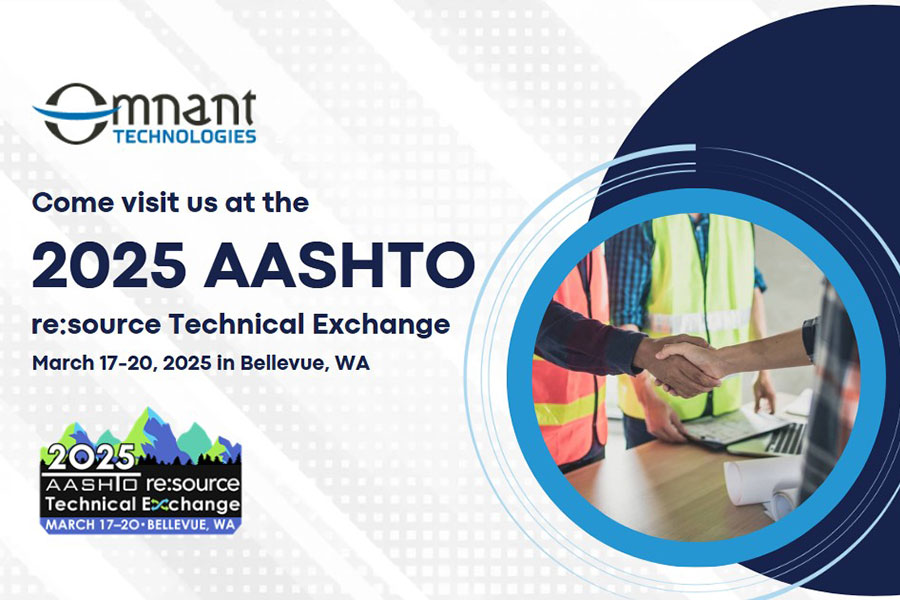Geotechnical Engineering Software: Top Tools for Modern Firms
The geotechnical engineering industry has moved beyond paper logs and disconnected spreadsheets. Today's geotech software solutions are changing how engineering firms handle field data collection, laboratory testing, and project reporting. The question isn't whether your firm needs these tools – it's what geotechnical engineering software works in your specific situation.
Why Modern Geotechnical Software Matters
Geotechnical engineering software addresses real problems: fragmented data collection, time-consuming manual processes, and quality control challenges across multiple project sites. Field teams collect data from various locations, laboratory testing requires careful coordination, and project managers need real-time visibility while clients demand immediate updates.
The most effective geotech software doesn't just digitize old processes; it creates new workflows that connect field operations, laboratory testing, and project management. This integration eliminates data entry errors, reduces project delivery times, and improves overall accuracy.
Core Features Your Software Should Include
Digital Field Data Collection
Modern platforms make digital logging faster and more accurate than paper methods. Your field teams need tools that work reliably in challenging conditions, whether conducting soil sampling in remote areas or managing drilling operations in urban environments.
GPS integration provides precise location tracking for every data point, while automated photo documentation creates comprehensive visual records. Advanced platforms offer offline capabilities, letting teams continue working without connectivity and syncing data automatically when they're back online.
Laboratory Integration & Sample Management
Effective geotechnical engineering software connects field operations with laboratory testing. From sample collection to final results, the software tracks the entire process including automated labeling, chain of custody documentation, and real-time status updates for project managers.
When combined with construction materials testing software, these systems create comprehensive quality control workflows that reduce errors and improve compliance with industry standards.
Project Management & Reporting
Geotechnical engineering software provides project managers with complete visibility into operations through real-time dashboards showing field investigation progress, laboratory testing status, and report generation timelines.
Modern platforms generate professional, customizable deliverables that meet specific client requirements while maintaining consistency across projects. They can produce everything from preliminary field reports to comprehensive geotechnical reports while maintaining technical accuracy.
Creating Connected Workflows
The real advantage of today's software comes from integrated workflows that span the entire project lifecycle. When field data flows directly into laboratory systems and laboratory results automatically populate project reports, organizations become more efficient and responsive.
This integration eliminates data entry errors common in traditional workflows. Instead of manually transferring information between systems, data moves automatically through predefined processes, maintaining accuracy while reducing administrative work.
When your software actually talks to your other systems, you start seeing benefits like reduced data entry errors, faster report generation, better resource utilization, improved client communication, and stronger quality control.
Quality Control & Compliance
Geotechnical work demands high-level quality control, and modern software platforms support these requirements through automated quality checks that flag potential issues before they become problems. The software automatically verifies that testing procedures follow established protocols, equipment calibrations are current, and safety requirements are met.
Choosing the Right Geotechnical Engineering Software
Understanding Your Needs
Not all geotechnical engineering software works the same way. Before evaluating options, assess your current workflows and identify specific problems that software should solve. Consider factors like project types, team size, geographic distribution, and client requirements.
Some firms primarily handle foundation investigations for commercial development, while others focus on environmental assessments or infrastructure projects. Each specialty has unique requirements that should influence software selection.
Integration with Existing Systems
Your geotech software shouldn't operate in isolation. Look for platforms that integrate with existing tools, including CAD software, project management systems, and accounting platforms. Consider how the software will work with your current construction materials testing equipment and whether it can accommodate specific instruments and procedures your laboratory uses.
Implementation Best Practices
Successful geotechnical engineering software implementation requires careful planning. Identify key stakeholders including field personnel, laboratory staff, and administrative team members. Each group has different needs that should be addressed during planning.
Develop a phased approach that allows your team to adapt gradually. Rather than digitizing everything at once, focus on areas that will provide the most immediate benefit. This might mean starting with field data collection or laboratory sample tracking before moving to more complex integrations.
Training & Support
Even intuitive geotechnical software requires proper training to achieve its full potential. Different team members need different levels of training based on their roles and technical comfort levels. Create internal champions who can provide ongoing support and troubleshoot issues. These individuals should receive advanced training and have direct access to technical support resources.
The Future of Geotechnical Engineering Software
The geotechnical software landscape continues evolving with developments in artificial intelligence, machine learning, and automated analysis capabilities. These technologies promise to further improve workflows while providing deeper insights into subsurface conditions and project risks.
Machine learning algorithms are becoming more sophisticated at pattern recognition in soil data, potentially identifying geological conditions that traditional analysis methods might miss.
The Internet of Things (IoT) creates new possibilities for continuous monitoring of construction sites and infrastructure projects. Modern geotechnical software platforms are beginning to incorporate real-time data from sensors and monitoring equipment, providing unprecedented visibility into changing conditions.
Making the Investment
Quality geotechnical engineering software requires a significant investment, but returns typically justify the expense through improved efficiency, reduced errors, and faster project delivery. Calculate potential savings from reduced data entry time, fewer rework incidents, and improved project margins to understand the true value.
Firms that can deliver projects faster and with higher quality often win more work and command premium pricing. Choose a software vendor that understands the geotechnical engineering industry and can provide ongoing support.
Getting Started
The geotechnical engineering industry is evolving rapidly, and software solutions are leading the way toward more efficient, accurate, and profitable operations. Modern platforms offer the integration, functionality, and reliability that today's engineering firms need to compete effectively.
Whether you're looking to improve field data collection, laboratory workflows, or project management capabilities, the right geotechnical engineering software can transform how your firm works. By creating connected workflows that span the entire project lifecycle, these platforms eliminate friction, reduce errors, and improve project outcomes
When you’re ready to explore how today’s software solutions can help your firm work more efficiently, contact our team. Our experts understand the unique challenges facing geotechnical engineers and can help you develop a technology strategy that drives real results.
For more insights on optimizing your engineering workflows, explore our guide to construction materials testing and learn about laboratory information management systems that can complement your operations.
Share this Post:
Related Blog Post
Start streamlining your inspection and CMT testing processes with Omnant's integrated solution. Contact us today to learn how our software can support your goals for operational excellence.



